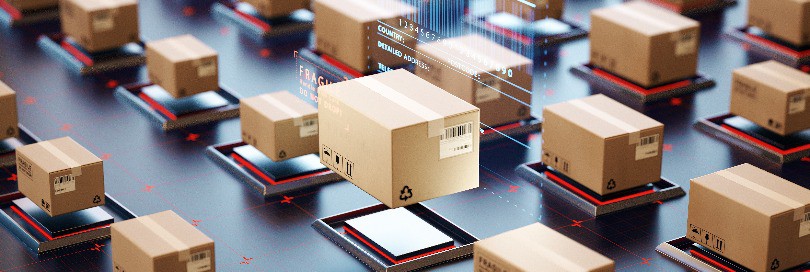- Overviews and comments
ES ir JK LPS: lengvatinė kilmė ir prekių grąžinimas

Adobe Stock
- Topic: muitai, mokesčiai kilmė

Adobe Stock
OR
Continue reading this article
Sign up and enjoy free access to an article of your choice!
Redakcijos pastaba. JAV tarifams krečiant tarptautinės prekybos pasaulį ir iššaukiant atsakomuosius tarifus, neretai tai vadiname „tarifų karais“. Tačiau tikslesnis pavadinimas būtų prekybos … karai, nes juose, nors ir sulaukiančios mažesnio dėmesio, svarbų vaidmenį vaidina netarifinio reguliavimo priemonės. Straipsnio autorius pateikia verslo patiriamų kliūčių ir rizikų apžvalgą, remdamasis Kinijos atsako į JAV tarifus pavyzdžiu.
Zhiwei Chen
Redakcijos pastaba. JAV tarifams krečiant tarptautinės prekybos pasaulį ir iššaukiant atsakomuosius tarifus, neretai tai vadiname „tarifų karais“. Tačiau tikslesnis pavadinimas būtų prekybos karai, nes juose, nors ir sulaukiančios mažesnio dėmesio, svarbų vaidmenį vaidina netarifinio reguliavimo priemonės. Straipsnio autorius pateikia verslo patiriamų kliūčių ir rizikų apžvalgą, remdamasis Kinijos atsako į JAV tarifus pavyzdžiu.
Zhiwei Chen
Straipsnyje analizuojama šiuo metu taikoma garantijos dydžio skaičiavimo metodika muitinės sandėliavimo procedūrose, aptariamos priežastys, dėl kurių atsiranda neatitikimų tarp verslo subjektų … teikiamų duomenų ir muitinės patikrinimų metu nustatytų referencinio dydžio reikšmių, bei įvardijamos šių skirtumų pasekmės verslui. Taip pat pateikiami siūlymai, skirti inicijuoti konstruktyvią diskusiją tarp verslo ir muitinės atstovų dėl optimalesnio garantijos skaičiavimo modelio bei kitų referencinio dydžio kontrolės ir valdymo priemonių, geriau atspindinčių realią veiklos riziką ir prekių srautus.
Irina Duleva
Straipsnyje analizuojama šiuo metu taikoma garantijos dydžio skaičiavimo metodika muitinės sandėliavimo procedūrose, aptariamos priežastys, dėl kurių atsiranda neatitikimų tarp verslo subjektų teikiamų duomenų ir muitinės patikrinimų metu nustatytų referencinio dydžio reikšmių, bei įvardijamos šių skirtumų pasekmės verslui. Taip pat pateikiami siūlymai, skirti inicijuoti konstruktyvią diskusiją tarp verslo ir muitinės atstovų dėl optimalesnio garantijos skaičiavimo modelio bei kitų referencinio dydžio kontrolės ir valdymo priemonių, geriau atspindinčių realią veiklos riziką ir prekių srautus.
Irina Duleva
Redakcijos žodis. JAV tarifų įvedimai, atšaukimai ir stabdymai sukūrė naujų iššūkių verslui, eksportuojančiam į JAV. ES atsakomieji tarifai atitinkamai sukurs iššūkių importuotojams. Į klausimus … apie tai, kokią pagalbą siūlo verslui, bandančiam spėti paskui kintantį naują reguliavimą, maloniai sutiko atsakyti Užsienio reikalų ministerija.
Užsienio reikalų ministerija
Redakcijos žodis. JAV tarifų įvedimai, atšaukimai ir stabdymai sukūrė naujų iššūkių verslui, eksportuojančiam į JAV. ES atsakomieji tarifai atitinkamai sukurs iššūkių importuotojams. Į klausimus apie tai, kokią pagalbą siūlo verslui, bandančiam spėti paskui kintantį naują reguliavimą, maloniai sutiko atsakyti Užsienio reikalų ministerija.
Užsienio reikalų ministerija
Prekybos politikoje įtampa sparčiai auga. Pastaraisiais mėnesiais kelios didžiosios ekonomikos paskelbė arba jau įvedė plataus masto muitus – priemonę, kuri daugelio buvo laikoma praeities dalyku. … Šie sprendimai sulaukė gausybės politinių komentarų, tačiau už viešų diskusijų slypi ekonominiai tyrimai, leidžiantys geriau suprasti, kokį poveikį iš tikrųjų daro muitai.
Ralph Ossa
Prekybos politikoje įtampa sparčiai auga. Pastaraisiais mėnesiais kelios didžiosios ekonomikos paskelbė arba jau įvedė plataus masto muitus – priemonę, kuri daugelio buvo laikoma praeities dalyku. Šie sprendimai sulaukė gausybės politinių komentarų, tačiau už viešų diskusijų slypi ekonominiai tyrimai, leidžiantys geriau suprasti, kokį poveikį iš tikrųjų daro muitai.
Ralph Ossa
Teisingas prekės tarifinis klasifikavimas lemia jos apmokestinimą muitais ir kitais mokesčiais. Jei prekės Kombinuotosios nomenklatūros (KN) kodas pasikeičia, tai gali turėti įtakos mokesčių … naštai, kuri gali tiek padidėti, tiek sumažėti arba išlikti nepakitusi. Šiame straipsnyje apžvelgsime teismų praktikoje nagrinėtą atvejį, kai ta pati prekė buvo tris kartus skirtingai klasifikuojama, ir kokias pasekmes verslui gali turėti tokia klasifikavimo painiava.
Irina Duleva
Teisingas prekės tarifinis klasifikavimas lemia jos apmokestinimą muitais ir kitais mokesčiais. Jei prekės Kombinuotosios nomenklatūros (KN) kodas pasikeičia, tai gali turėti įtakos mokesčių naštai, kuri gali tiek padidėti, tiek sumažėti arba išlikti nepakitusi. Šiame straipsnyje apžvelgsime teismų praktikoje nagrinėtą atvejį, kai ta pati prekė buvo tris kartus skirtingai klasifikuojama, ir kokias pasekmes verslui gali turėti tokia klasifikavimo painiava.
Irina Duleva
* Mandatory fields
By signing up you agree to the Terms of Use and Privacy Policy
or Sign up
Already have an account? Login here
Already have an account? Login here
or Sign up
Comments ()
To post a comment you need to